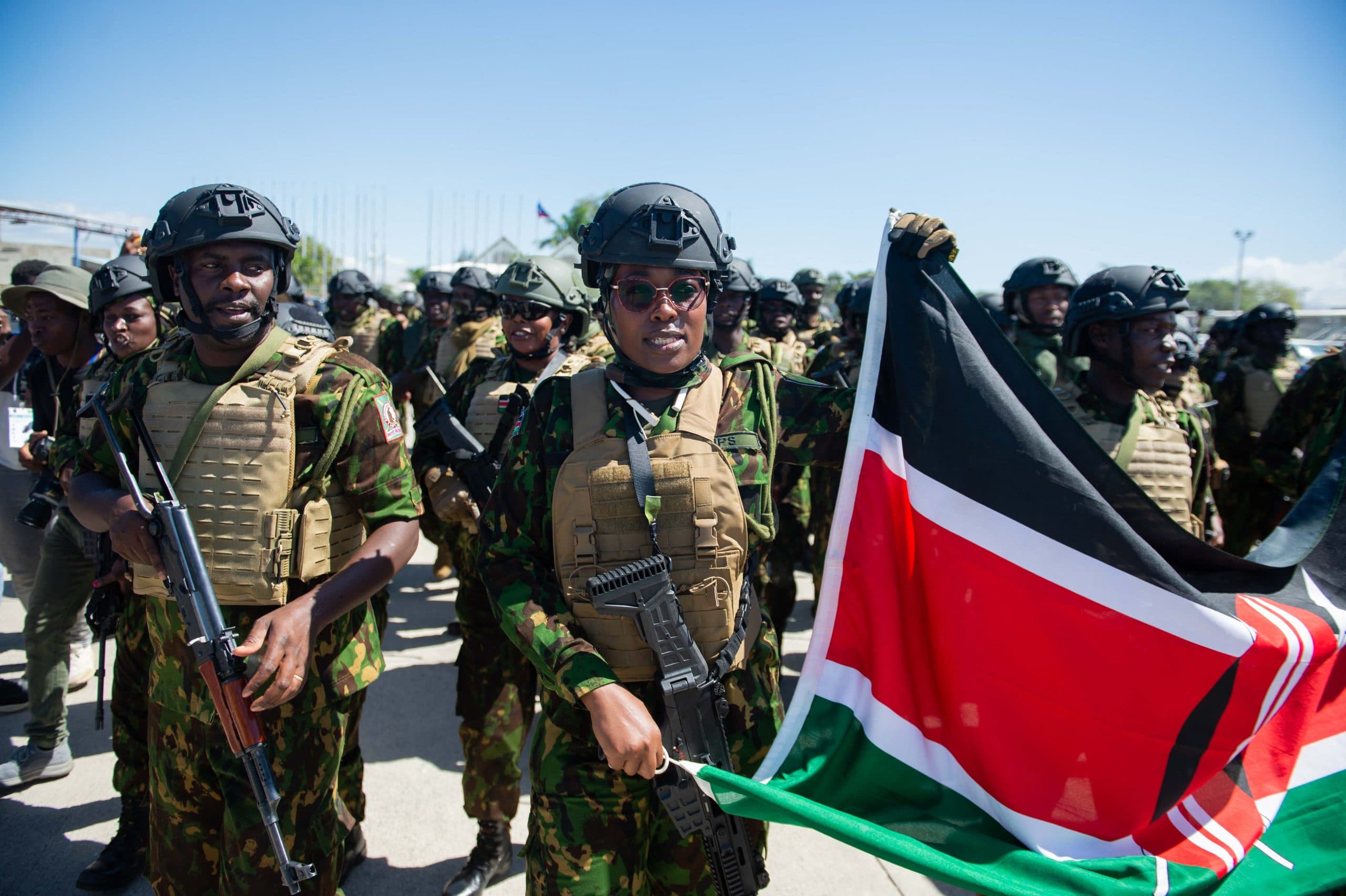Reason Why Kenya’s UN-Backed Police Mission to Haiti Stalled
When the United Nations approved Kenya to lead a multinational police mission in Haiti, many people saw it as a bold step toward restoring order in a country where gangs have virtually taken over entire neighborhoods. Kenyan officers were expected to support the Haitian police, protect key facilities, and help communities breathe again after years of violence.

But that mission has not gone as planned. Instead of flights to Port-au-Prince, Kenya found itself grounded by a mix of legal battles, political upheaval, and logistical problems that have left the mission stalled. The first setback came from Kenya’s own courts. In January 2024, the High Court ruled that the deployment was unconstitutional.
The government had skipped some of the legal requirements, including parliamentary approval and a formal reciprocal agreement with Haiti. Without those in place, the judges effectively barred the police from leaving.

At the same time, the situation in Haiti itself grew worse. Prime Minister Ariel Henry, already under pressure, announced his resignation, leaving the country without a clear political authority. For Kenya, it made little sense to send its officers into a country with no stable partner government. In Nairobi’s view, deploying under those conditions was like sending guards to protect a house without an owner.
Even if those hurdles had been cleared, the mission was starved of resources. The cost of running it was estimated at around six hundred million dollars a year, but international pledges have been far less. Many governments voiced support in speeches, but the money and actual troops have been slow to arrive. That meant Kenya would have carried much of the burden with limited backup, on top of the challenges of language, logistics, and the dangerous terrain controlled by heavily armed gangs.
Another complication lay in how the mission was structured. This was not a classic UN peacekeeping operation with blue helmets and guaranteed UN funding. Instead, it was a multinational support mission, authorized by the UN but dependent on voluntary contributions. Kenya was asked to lead without the full machinery of a peacekeeping mandate behind it, and that raised questions about whether the mission could succeed in the face of Haiti’s deep crisis.
All these factors combined to halt the deployment. For Haiti, that means another delay in addressing the gang violence that has displaced thousands and paralyzed their daily life. For Kenya, it is a lesson in the political and legal complexities of overseas missions. And for the United Nations, it is yet another sign that ambitious mandates without strong funding and stable partnerships are unlikely to deliver the results that struggling nations desperately need.
